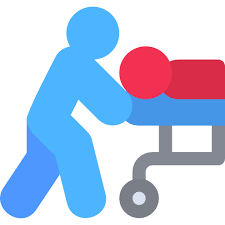
Introduction
Emergency Medical Services (EMS) provide critical care and transportation in emergencies. Paramedics are trained professionals who deliver urgent medical attention in life-threatening situations. This diploma program equips students with essential skills for managing emergencies, saving lives, and providing quality patient care.
EMS Overview
- EMS focuses on providing immediate care during emergencies.
- Paramedics handle a wide range of medical situations, including trauma, cardiac arrest, and more.
- Key components of the EMS role include:
- Emergency care and patient transportation.
- Collaboration with healthcare teams.
- Management of life-threatening conditions.
Paramedic Training
- Paramedic training involves extensive coursework and hands-on practice.
- Training covers topics like anatomy, physiology, and emergency procedures.
- Key areas of focus include:
- Airway management and trauma care.
- Pharmacology and cardiac care.
- Simulated emergency scenarios.
Paramedic Responsibilities
- Paramedics must assess, treat, and transport patients in emergencies.
- They work in diverse environments, from ambulances to disaster zones.
- Key responsibilities include:
- Providing life-saving interventions on-site.
- Monitoring patient vitals and administering medication.
- Staying calm under high-stress situations.
Patient Assessment and Care
- Paramedics conduct thorough assessments of patients' conditions.
- They determine the appropriate course of treatment based on symptoms and vitals.
- Key tasks include:
- Administering treatments like oxygen therapy and CPR.
- Managing pain and stabilizing patients.
- Transporting patients to medical facilities.
Challenges and Rewards
- Paramedics face stressful situations, including life-and-death emergencies.
- The profession is physically and emotionally demanding.
- Despite challenges, paramedics experience the reward of saving lives.
- Long shifts and exposure to traumatic events are common.
- High levels of job satisfaction come from helping others.
- Support systems are crucial for coping with stress.
Career Opportunities
- Graduates can work in various settings like hospitals, ambulances, and government agencies.
- Popular career paths include:
- Emergency Response Units
- Disaster Response Teams
- Helicopter EMS
- Paramedics can advance to roles in healthcare management and training.